April 2nd in Wakching started much the same as the preceding day had done, with heavy rain. Unlike the previous days heavy rain this downpour lasted for hours. By 7.00am I had been huddled around the house fire with Ayong’s sisters and his mum. The rest of the house was trying to sleep off their hangovers and staying in bed. The grey skies and rain continued right through the morning and now I started to worry about the roads and landslides.
By midmorning we started to hear from the occasional visitor that the whole day’s festivities were going to be postponed to the following day due to the rain
. Around mid day the rain started to cease and I persuaded Annyem to walk me back to the old part of town where we had been the day before. Annyem was obviously still badly hungover but seemed to be prepared to accompany me when his uncle insisted.
The situation in the old town was, well wet. Huge pools of water were on the ground in front of the five traditional Morongs. These were meant to be the site of the centre pieces of the festivities. However, these pools made dancing difficult if not impossible and as soon as we arrived, more rain started falling and again we had to seek shelter in many of the houses we had been in the night before. The rain seemed incessant and heavy.
With little going on, we both headed back for Ayong’s Colony in the hope of finding something. I thought I would pay a visit to the Lady Preacher who was a neighbour of Ayong’s. She had invited me on the first day and was keen to show me some shawls she had woven. I met her parents and she told me about her life in the church and her work in Wakching. As the afternoon drifted on the sun started to come out and at that moment, Ayong’s father appeared telling me that he and some friends were going to start the Aoling festival dance in his courtyard, so I could see something.
Back at the house, Ayong’s father, mother, uncle and auntie plus several neighbours had formed a circle and we starting the traditional chants and the slow circular dance to welcome Spring
. I sat and watched and was then roped in. Round and around we went with this traditional hypnotic chant, all the time more people joining. Soon with the sun setting, Ayong, Langa and Sunita emerged and also joined in. We could also hear the same songs coming from other parts of the village.
As darkness descended, we left the courtyard and retreated into the house to the distant sound of the girls again singing to the moon. Inside, as Ayoung announced he was going to some friend’s houses, his father and two friends offered to sing some traditional songs accompanied by the traditional Naga violin. This was what I had first witnessed in Longsa, the Ao village with Dieter and Dominique in 2013.
Here these instruments were rather newer models than the one I had listened too two years ago and they were not so “screeching” to the ear. In fact Ayoung’s fathers voice turned out to be perfect for these traditional songs. Two violins were produced and I was treated to an impromptu concert for well over an hour. The songs were either sung individually or in duet and it was rather telling to see that only one person under 40 years was listening in the packed room. It transpires that these songs and the instrument are really out of favour with the younger generation who are more into Nagaland’s X Factor and the like
. I on the other hand throughly enjoyed these songs, more so than those I heard two years before.
The next morning it was still raining. Actually it had been raining so much at night it had keep me awake. At 5.30am it was obvious again that the festival was in trouble. When I asked whether it could be delayed, I was informed that as the following day was Good Friday, there was no opportunity.
With little chance of the Aoling beginning, the alcohol was opened for lunch (or breakfast) at 8.00am and all the men got stuck in. As the first bottles were dispatched, more men started to arrive including some of the young men we had met the first night out in the old town. Sunita asked one of the young men where his wife was, to which he replied “she is at home working!” This provoked a furious reaction from Sunita who was started to lament the inequality on show here in Wakching
. This topic of discussion hardly caused a pause in the drinking.
At about 11.00am I was getting cabin fever, and as soon as the rain stopped I ventured out saying I was going to stretch my legs. As I walked up to where the football tournament had been played a few days earlier, I could hear faint singing and chanting coming from the old part of town. I legged it back to Ayoung’s and said I was going to investigate and Langa quickly said he would come as well.
As we left the courtyard, the young man who told Sunita that his wife was at “home working” casually mentioned that he had seen tourists arriving that morning in the old part of town. I was shocked that he had not mentioned this before. These young men must have all assumed that I (a tee totaler) had only visited Watching for the alcohol. Langa and I hurried off towards the old town, through the muddy potholed streets which were now washed out with the last few days of torrential rain. As we started to climb the steps towards the first Morong we bumped into a very drunk Chewing Gum. He could hardly talk, but managed to splutter out some words and huffed and puffed as he tried to keep up. As we reached the first Morning, it was obvious that there was nothing happening here and I could no longer hear any chanting. Chewing Gum kept saying we should return to the new part of town but I was not interested
. Damn it, I had spent time and money getting here and if any form of the Aoling was happening (even if it was just for tourists, i was going to find it). Chewing Gum continued to jabber on, saying it was not safe and as we walked on into the new town, I could now hear the chanting. Chewing Gum was now getting on my nerves at this stage and as we came into view of the next Morong I could see a big crowd. In front of the Morong were two large circles of men. The older men were in the smaller inner circle chanting and dancing rather like Ayong’s father had been doing the previous day. The outer ring was full of younger men and teenagers. Most were not wearing traditional clothes, but some of the older generation were. On the steps in front of the church sat many of the spectators including several tourists from Mainland India with their Konyak Guide. Under threatening clouds I took my seat next to them and got my camera ready. Langa joined me whilst Chewing Gum continued to harangue me despite my demands that he should leave us alone
. “He is drunk,” said the Konyak guide, “like everyone in town!” she added. I could only agree.
Nevertheless it was an interesting spectacle, and we watched as the older generation berated the younger ones whilst the dancing and chanting continued. I could not find out if this was the Aoling Festival for real or just a show for the tourists. I also felt I could not ask the guide in front of her clients this question. However it did appear that they had been there for a while. Chewing Gum continued to be a nuisance.
In the end the chanting wound down, and the tourists packed up and left. The Konyaks, on the other hand just filed out of one Morong and walked over to the next one and started again. Langa thankfully warned me not to walk either in front of this procession or with it, but behind (for me to do this would have been a huge insult to the elders). Chewing Gum just tagged along. Unfortunately my mobile’s reception was appalling again and we could not reach Sunita to tell her to come. Chewing Gum by this stage had disappeared.
As I watched the festivities it became more and more interesting once I got over my anger that no one had told me it was going on. The crowd watching were also interesting
. Old people with plenty of tattoos were there, mostly women with tattoos on their arms and legs. Old men in more traditional attire kept arriving looking and then leaving. Certainly many people seemed to be enjoying this, despite the level of intoxication. Once again, as it seemed to be finishing at this Morong, a procession filed away from here and over to the final Morong which overlooked the whole village. Almost immediately the chanting began again. Finally the rains arrived again, this time halting the festivities with another torrential down pour and we took refuge with Ayong’s relatives.
When it finally did clear up and we arrived back at Ayong’s parents house, Ayong told us that he was concerned as some rivalries within the town had flared up over night and there had been one assault and some rock throwing. Luckily I had encountered nothing like that, but it certainly appeared that I had witnessed the only part of the Aoling Festival which was going to take place in 2015
. The rain was now falling heavily again, and it continued to do so all night.
With Aoling now over for another year and technically a wash out, my attention turned to leaving Wakching and meeting my father in Jaipur. The weather and the road conditions were worsening and getting tickets, became a priority. Once again it had rained heavily for most of the night and I heard that the more direct road to Assam was now blocked by a landslide. Ayong’s father was confident we could leave after the Easter weekend (there was to be no transport during the Easter holidays) and Sunita decided to wait and join both myself and Langa for the trip.
The day became now somewhat monotonous. Up early and watching the rain from the comfort of the fireside stools with cups of black tea. The temperature was pretty cold now and we basically ate all the pork and started on some beef. Good Friday Church started early and in the afternoon we just whiled the time away talking with the family discussing Konyak crafts and culture. The highlight for everybody else seemed to be looking at my photos despite the lack of any electrical power.
As nightfall approached the alcohol started again flowing into everyone’s cups except mine, Langa’s, Sunita’s and the female population of Watching
. The lights suddenly flickered into action around eight o’clock and lasted just a second or two before extinguishing. The laughing from every household drowned even the rain outside. It seems everyone was just fed up with the Nagaland Electricity Board. And so they should be after two weeks with no power.
Easter Saturday brought the first hint of a change. By mid morning the sun was out and the temperature was rising. By now the neighbours were arriving to see my photos and soon people were dressing up in their traditional clothes and wanting some family shots. I was happy to oblige. Ayong’s local printing business initially seemed like a beneficiary of these photos but he soon confided that he could not charge his relatives for their printing of just these private photos and now he had over fifty requests. I knew that the cost of ink and paper in India (just like everywhere else) is prohibitively expensive so I gave him some money. He looked relieved. My photography day continued and soon the children were being dressed up. Ado’s daughter was a particular star.
That evening the power returned and was greeted with an ear bending roar of approval from the whole village. All the electrical appliances were hurriedly charged and converters primed. Suddenly the whole village took on a completely new atmosphere
. Suddenly a party was declared by the young men again, rice beer was prepared and glasses raised. The consumption of alcohol was extraordinary over these six days. I popped in the ear plugs and took the opportunity of an early night, as the young men drunk the rice beer and their wives “worked” at home.
The knowledge of a this dry day had filled me with confidence that I could leave Nagaland on time and make my flight in Guwahati with some days to spare. The morning of Easter Sunday though somewhat shattered that belief as the rains returned with a renewed ferocity together with another power cut. The previous nights party had exhausted what little charge the converter had managed to store so the family was again - power free.
The one break in the weather did facilitate a dash to the old town to buy some Sumo tickets and another load of shopping for Ayong’s parents. But the weather was atrocious again and huddled around the fire was all I can remember wondering if the journey in Monday would happen.
When Monday morning finally arrived, it was dry - surprise surprise and our Sumo was a suitable one hour late. The family saw us off and it was sad as we had made great friendships and I had developed a much better understanding of these people. Ayong had been a tremendous host, vacating his room for me and accommodating Sunita. His mother and father had also been wonderful, as had been his sisters with their tireless work. His friends, especially Ado, Chewing Gum (not his real name just what Sunita called him) and the others plus his cousin Annyem had been just great and I hope they continue to enjoy life and success.
In the end it was an Aoling Festival decimated by the weather. I did get a flavour of what this festival was like thanks to the efforts of Ayong’s parents and his friends, but it was a great shame to miss this festival. However I know everyone was grateful for the rain so that at least was a blessing.
Aoling Festival, Rain, Easter, Rain, Rain
Monday, April 06, 2015
 Wakching, Nagaland, India
Wakching, Nagaland, India
Other Entries
-
101Sand, Masks, Forest Man, Monks & Bamboo
Feb 0263 days prior Majuli, Indiaphoto_camera8videocam 0comment 0
Majuli, Indiaphoto_camera8videocam 0comment 0 -
102Julius, Gibbons, Park Fees, Tea & Gymkhana
Feb 0560 days prior Jorhat, Indiaphoto_camera5videocam 0comment 0
Jorhat, Indiaphoto_camera5videocam 0comment 0 -
103Houseboats, Dolphins, Rain and Animal Planet
Feb 1055 days prior Tinsukia, Indiaphoto_camera5videocam 0comment 0
Tinsukia, Indiaphoto_camera5videocam 0comment 0 -
104Tezu family home, TV Mike, Huts, Cows, River Wash
Feb 1451 days prior Tezu, Indiaphoto_camera5videocam 0comment 0
Tezu, Indiaphoto_camera5videocam 0comment 0 -
105Sumos, Boulders, Oranges, Idu Mishmi
Feb 1748 days prior Roing, Indiaphoto_camera5videocam 0comment 0
Roing, Indiaphoto_camera5videocam 0comment 0 -
106Motorbikes, Idu Mishmi, Hats, Illness, Scenary
Feb 1946 days prior Anini, Indiaphoto_camera9videocam 0comment 0
Anini, Indiaphoto_camera9videocam 0comment 0 -
107Nyokum Yullo, Nishi people, ferries, chain dance
Feb 2243 days prior Itanagar, Indiaphoto_camera5videocam 0comment 0
Itanagar, Indiaphoto_camera5videocam 0comment 0 -
108Paddies, Plugs, Tattoos, Weddings, Bamboo, Spirits
Feb 2441 days prior Ziro, Indiaphoto_camera5videocam 0comment 0
Ziro, Indiaphoto_camera5videocam 0comment 0 -
109Post Office, Hari's Help, Tourist Apartheid
Mar 0136 days prior Guwahati, Indiaphoto_camera3videocam 0comment 0
Guwahati, Indiaphoto_camera3videocam 0comment 0 -
110Hornbills, Eco Lodge, Birds, Elephants & Nameri NP
Mar 0334 days prior Tezpur, Indiaphoto_camera5videocam 0comment 0
Tezpur, Indiaphoto_camera5videocam 0comment 0 -
111Plans Changing, Bus tyres, early closing museums
Mar 0829 days prior Kohima, Indiaphoto_camera2videocam 0comment 0
Kohima, Indiaphoto_camera2videocam 0comment 0 -
112Wildlife, History, Bad Roads, Elephants & Dust
Mar 1324 days prior Wokha, Indiaphoto_camera5videocam 0comment 0
Wokha, Indiaphoto_camera5videocam 0comment 0 -
113Wedding, More Dust, Shawls, Tensions and Sumi Food
Mar 2017 days prior Zunheboto, Indiaphoto_camera3videocam 0comment 0
Zunheboto, Indiaphoto_camera3videocam 0comment 0 -
114Stones, Inventions, Old Friends and Shop 65
Mar 2413 days prior Mokokchung, Indiaphoto_camera5videocam 0comment 0
Mokokchung, Indiaphoto_camera5videocam 0comment 0 -
115Meeting Mr Sosangtemba Longkumer Ao
Mar 2611 days prior Longsa, Indiaphoto_camera4videocam 0comment 0
Longsa, Indiaphoto_camera4videocam 0comment 0 -
116Expensive Transport, Rain, Football, Cockroaches
Mar 289 days prior Longleng Nagaland, Indiaphoto_camera3videocam 0comment 0
Longleng Nagaland, Indiaphoto_camera3videocam 0comment 0 -
117Pork, Pigs, Moon Singing, Monsoon, Footy
Apr 015 days prior Wakching, Indiaphoto_camera10videocam 0comment 0
Wakching, Indiaphoto_camera10videocam 0comment 0 -
118Aoling Festival, Rain, Easter, Rain, Rain
Apr 06 Wakching, Indiaphoto_camera10videocam 0comment 0
Wakching, Indiaphoto_camera10videocam 0comment 0 -
119The Not Super Travel Co, Tea, Temples & Bye Byes
Apr 104 days later Kamakhya, Indiaphoto_camera5videocam 0comment 0
Kamakhya, Indiaphoto_camera5videocam 0comment 0 -
12035c, Haveli, Pink City, Amber Fort, Tigers, Tigers
Apr 159 days later Sawai Madhopur, Indiaphoto_camera5videocam 0comment 0
Sawai Madhopur, Indiaphoto_camera5videocam 0comment 0 -
121Taj, Baby Taj, carpets, arguments, fever plus 43c
Apr 1812 days later Agra, Indiaphoto_camera5videocam 0comment 0
Agra, Indiaphoto_camera5videocam 0comment 0 -
122Mud, Mangroves, Kingfishers, Boats, Storms, Otters
Apr 2216 days later Sundarbans National Park, Indiaphoto_camera10videocam 0comment 0
Sundarbans National Park, Indiaphoto_camera10videocam 0comment 0 -
123Last Days in Kolkata, Obsolete Passports, Thailand
May 0125 days later Koh Chang, Thailandphoto_camera10videocam 0comment 0
Koh Chang, Thailandphoto_camera10videocam 0comment 0 -
124Getting home, reflections and thoughts
May 1337 days later Bristol, United Kingdomphoto_camera3videocam 0comment 3
Bristol, United Kingdomphoto_camera3videocam 0comment 3

 Wakching, Nagaland, India
Wakching, Nagaland, India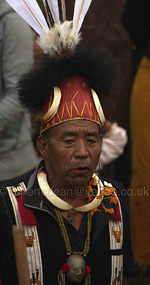
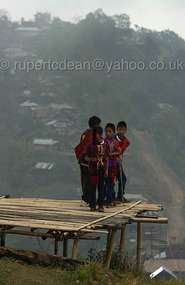
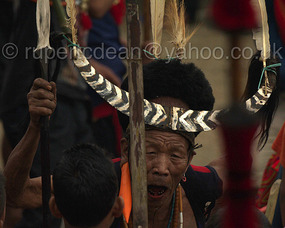
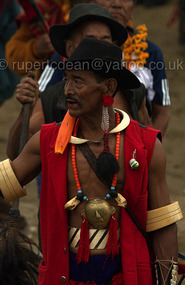
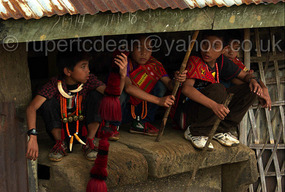
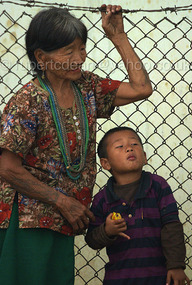
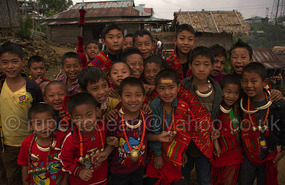
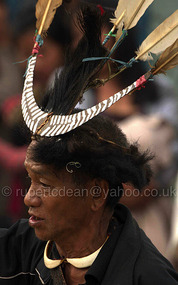
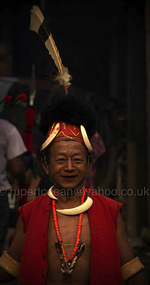
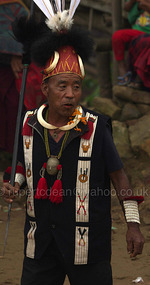



2025-05-22